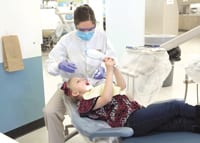Baystate Mary Lane Hospital Hosts Monthly – Diabetes Support Group
WARE — When facing a health challenge of any kind, the support of family and friends is vital, and diabetes is no exception.
“Diabetes can affect nearly every aspect of your daily life, and dealing with it can be a daunting task,” said Alicia Walter, a registered dietitian nutritionist and nutrition educator at Baystate Mary Lane Hospital (BMLH). “Meeting with other people who have diabetes and sharing common experiences can be both comforting and educational. No matter how determined and focused we are on doing the right thing, many also benefit greatly from support.”
BMLH’s diabetes support group meets the first Wednesday of every month from 5 to 6 p.m. in the main conference room located on the second floor of the hospital. Walter, who facilitates the group, said the group “offers a forum to exchange tips between group members. During each meeting, we cover a specific topic that will help our members develop coping and self-care skills that help when dealing with diabetes. Discussions include the latest diets, understanding medications and what they do, how mental and physical stress affects blood sugar, and much more.”
Added Gerry Molleur, who attends the monthly meetings, “these diabetes support group meetings are important for people of all ages who are facing a diagnosis of diabetes. We exchange information with one another, and I find having a health instructor who meets with us monthly to answer our questions and keep us informed as new information comes available is valuable.”
According to the American Diabetes Assoc., by the most recent estimates, 18.8 million people in the U.S. have been diagnosed with diabetes, and an additional 7 million are believed to be living with undiagnosed diabetes.
“Diabetes is a chronic condition that requires you to make many decisions every day to successfully manage blood sugars and prevent diabetes-related health problems,” says Walter. “These decisions include what to eat, when to eat, when to take medicine, how to check blood sugar, and what to do if your blood sugar is high or low.”
Joyce Sizer, who regularly attends the meetings, said the group “has been a great help keeping me on the right track. Together, we have learned a great deal about reading labels and about the importance of counting carbohydrates.”
“At times,” Walter said, “a person with diabetes can feel alone and different than other family members and friends. Diabetes support groups can provide a wealth of information from other group members about what they have learned and what they have tried and gained from both their successes and the mistakes they’ve made. These are the practical types of information you may never see written in a book or magazine, but are valuable all the same.”
Meetings are open to community members who have diabetes, their families, and anyone who is interested in learning more about diabetes. Registration is not required. For more information, contact Michelle Holmgren, Public Affairs and Community Relations specialist, at (413) 967-2296.

